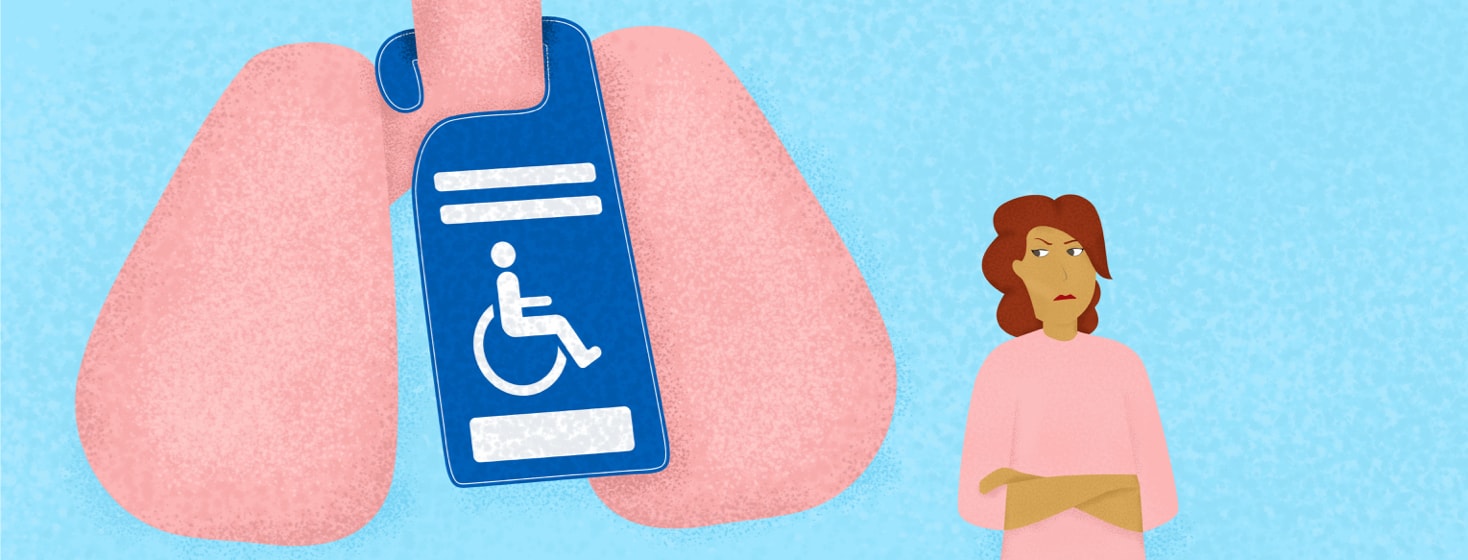Is COPD a Disability?
Anyone with severe COPD will look at that title and answer with a loud YES, without hesitation. Many people diagnosed with COPD are no longer able to work and collect Social Security Disability. According to the Social Security Administration's website, the definition of disability is as follows:
“For all individuals applying for SSDI benefits, and for adults applying for SSI payments, the definition of disability is the same. The law defines disability as the inability to engage in any substantial gainful activity by reason of any medically determinable physical or mental impairment(s) which can be expected to result in death or which has lasted or can be expected to last for a continuous period of not less than 12 months.”1
I didn't consider myself disabled
Getting approved because of COPD can be a difficult process. If you are so severe there is no question you will ever work again, it is a little less difficult. This was the category I fell in when I applied six years ago. Even with approval, I didn't consider myself disabled. Why? I can’t work what is considered a normal job with normal hours. A disability placard hangs in my car. For long walks and large stores, I use a mobility scooter or walker. Yet, I still shunned the word and opted for chronic illness instead.
Getting caught up on labels
At some point, I realized I was getting hung up on labels and definitions. They are words society places on a person. The definition might make a difference in the type of benefits I am qualified to receive. It does not describe me as a person.
Yes, I do have a chronic illness. I am also disabled because the severity of my COPD limits my physical movements. I am aware of how differently I am treated when I am out. In the supermarket, particularly the superstores, I ride a scooter and wear oxygen. It is not unusual to be asked throughout the store by other customers if they can help me. Graciously refusing their offer, I thank them, aware the offer would not be made if I was standing behind a shopping cart without oxygen.
My own reaction to using the word disabled in reference to myself used to embarrass me. I behaved the same way much of society does, looking upon disabilities as a weakness. Instead, it is quite the opposite. It takes a great deal of strength. Having a disability requires creativity in finding solutions to barriers others may not face. My lungs may be weak, but my mind certainly is not.
Acknowledgement brings freedom
By acknowledging I not only have a chronic illness, but one that has turned into a disability, I have also embraced my strengths. Imagine a series of questions on a resume. I have great management skills. I manage an illness that requires a well-balanced daily routine of medications, exercise, healthy meal planning, and rest. If this is not done well, an exacerbation could occur.
My problem-solving skills are excellent. I must find alternative ways to manage my home and life so that I am not short of breath to the point of not functioning. I am a self-starter. Even though I spend many days fatigued from shortness of breath or not sleeping well, I get up every day and complete everything required of me and more. I am well-organized, managing many prescriptions, appointments, oxygen, insurance, benefit requirements, if any, as well as tending to family and home.
Chronic illness, chronic disease, or disabled. They are labels with broad definitions. They certainly do not describe the person. What are your thoughts on this topic? Do you have a story to share concerning COPD as a disability?
Editor's Note: We are heartbroken to share that Carol passed away in February of 2022. Carol's storytelling and advocacy will be deeply missed, but her legacy lives on through her articles and in all the people she inspired.

Join the conversation